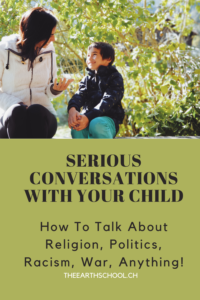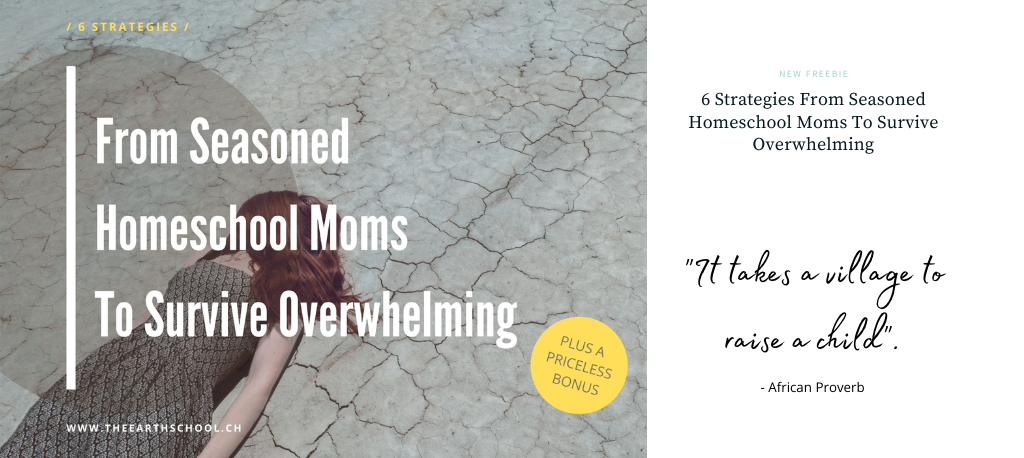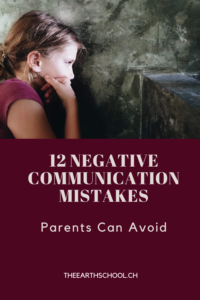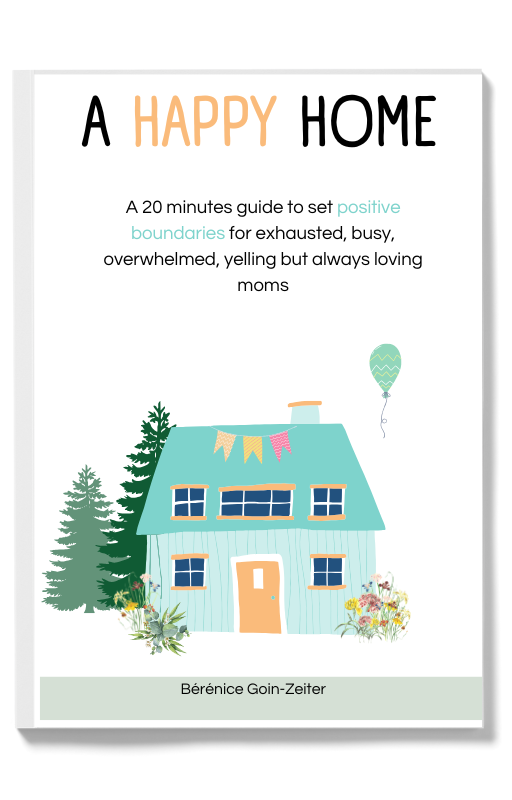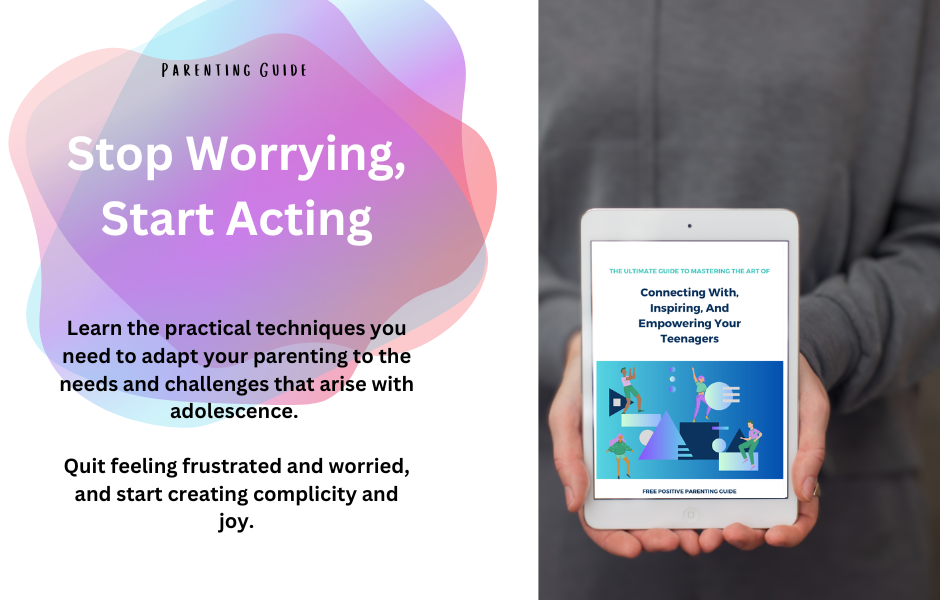
#17 How To Set Up A Difficult Conversation With Children
Don’t like to read? Listen to this blog post here!
Sometimes, you have to have one of those conversations with your children.
You wish you wouldn’t have to, but there it is. So how can you do it in the best way possible, knowing that children’s mind doesn’t process information the way we do? How can you be sure your child understands what you have to say? And how can you give the information with as little pain as possible?
Don’t have time right now? Download the PDF version
Some conversations are harder than others. You might have experienced this when the pandemic hit and you had to explain the quarantine, the worldwide virus, and the death of so many to your children. It was not easy, was it? But there will be more uncomfortable, difficult conversations ahead:
- Someone in the family passed away or has a serious illness.
- Your child is being bullied or has problems with peers.
- Your child has questions about religion, politics, racism, war, or cruelty.
- A child was kidnapped or murdered and it was on the news…
We would like to shield our children from the saddest and ugliest things of our world, but it wouldn’t be realistic. You might be tempted to sugar-coat it, or to tell them “you’ll understand when you grow up”, but nowadays, children have access to much information, and it’s hard to postpone delicate topics.
Having A Conversation With A Child Is Difficult
[Tweet “Research says adults don’t #communicate well with #children.”]
It doesn’t even have to be a difficult conversation…
Have you noticed how keeping your child focused when you’re willing to speak about a specific topic is complicated? Research shows that the difficulty becomes greater if the topic is delicate or if the adult pursues a specific goal.
You will find that children can often express themselves easily in casual settings, but not so much in a formal conversation. Have you ever tried to call one of your children and say something like “Dan, let’s talk about this”? Did this conversation bring you anywhere? Truth be told, it probably didn’t. Because your child listened without participating and just waited for the opportunity to slip out of it.
The younger the child, the more difficult the conversation. Why is that?
The main reason is that a discussion between an adult and a child isn’t on a horizontal level, it is vertical. The adult knows the child doesn’t. The adult speaks, the child listens.
So what can you do?
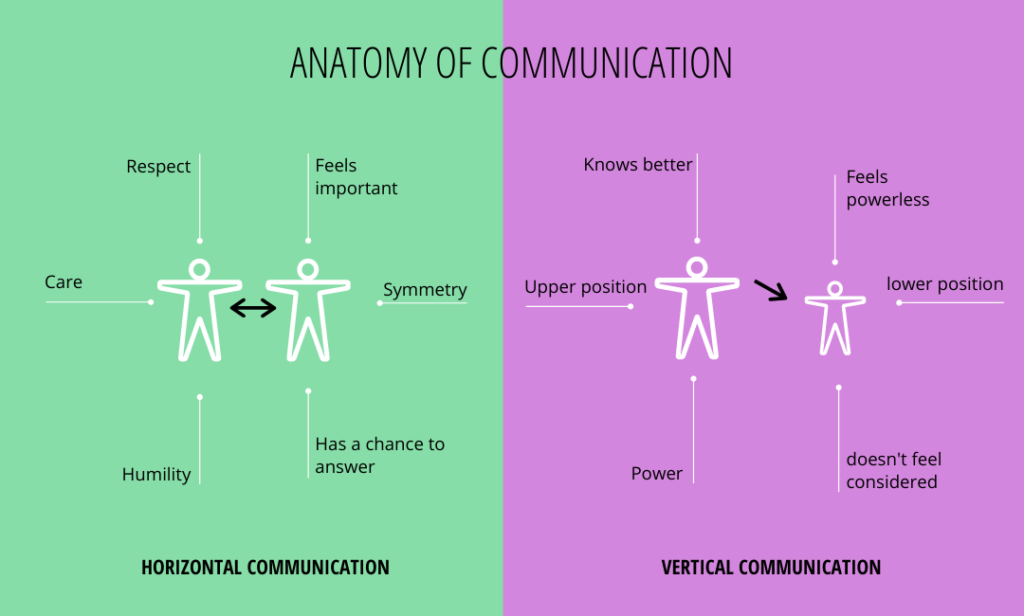
The power balance in the relationship makes it complicated and almost impossible to have a proper conversation.
The Death Of A Parent
On January 18th, 1997, I came back from a day of snowboarding with a friend. When we got home, many relatives were there, smoking and speaking quietly. As soon as my mother saw me, she took me by the arm and lead me to my bedroom upstairs. We sat on the bed. She told me she had something really difficult to tell me, some really bad news. And then she didn’t say anything.
I didn’t know if she was choking on her words or was hoping for me to guess and say it out loud for her. But I was 14, and my brain could not figure it out. I speculated on the death of our cat, but it seemed hardly serious enough for a family gathering. Then I asked if my pregnant cousin had lost her baby (As is started to understand those things).
In the end, my mom told me that my dad had felt unwell the evening before (which she hadn’t told me) and that it had been getting worse during the night. My grandparents had decided to drive him to the hospital but it was too late and he died.
And we never spoke about what happened ever again. We barely spoke about my dad actually, as I could tell it was too painful for my mother or my grandparents.
Lately, I spoke with my mother about my father’s death. It Turns out that I got most of it wrong and didn’t even know what my father’s sickness was. I was startled to find out how much my mom really knew about what happened that night and never shared them with me. Because I was a child.
Remember What It Was Like To Be A Child
As adults, we take many things for granted. When you have a conversation with another adult, you expect this person to understand unspoken codes. Observe your conversations with fellow grown-ups in the coming days and you will be astonished to realize how much information is conveyed is implied during the discussion. The tone of the voice, the choice of words, the body language, all those details give you a clue on what the person really wants to say.
The thing is, children don’t have the keys to understand those codes yet!

So, what do kids understand? It depends on their age…
Before 7 Years Old
Younger children usually can’t quite grasp the finality of death. For instance, a 4 years old children might think that if their grandpa is dead and buried, he might grow again, like a tree. And yet, it is important, to tell the truth to children and to say it early enough.
Let’s take adoption, for instance. Around 5, children often go through a stage of their life in which they have a great interest in their origin and try to figure out family relationships. They might not understand completely the ins and outs of adoption, but the information will match what their guts are telling them.
Keep in mind a few facts about young children: they are egocentric (empathy starts to develop at 4 years old), they are animists (the chair can suffer just as much as you), they understand things very literally (a child might refuse to wear their new shoes to the grandpa burial because they think burying is a messy business that will dirty their new shoes).
Do not overlook a difficult conversation based on a child’s young age. You might have to have this discussion again over the years, but speaking is always the smart choice.
Effective communication implies that you understand the areas of interest, the world of the thoughts, the emotions, and the communication form of your interlocutor. To be able to speak the truth to a child, a certain modesty, based on respect for the child is a necessity.
-Martine Delfos
From 7 Years Old Onward
This is definitely a huge milestone in child development. Between 6 and 8 years old, a lot of changes happen in a child’s understanding of the world.
First of all, learning to read and write gets the child closer to the adult world. Children also start to understand abstract things better, they grasp new concepts. Which also means they start to understand the hidden rules of a conversation.
The awareness children have about the world grows dramatically and it gets easier to have a “normal” conversation. But, children tend to avoid discussion about anything traumatic they experienced. Another result of this understanding is the fear of failing that will bring children to invent stories and lie to please the adult. Be mindful of that when you have a conversation with your child.
Unconditional love, trust, and reasonable expectations are a great help here.
From 12 Years Old Onward
As children enter puberty, they care less about what their parents think and more about what their peers think.
Children might joke (often in poor taste) about anything important, from a catastrophe to a murder. As teenagers try their best to fit in and to find a tribe, they can develop prejudices. It is important to let your child know your opinions (even if you think they don’t listen) and to remind them of deeper values, as it is also the age where idealism takes form.
Around 14 years old, children’s minds change radically again. They can now have abstract thought and the way they think is similar to those of adults. You can now speak as you would to another adult, keeping in mind the lack of experience and knowledge, as well as the high emotional sensitivity teenagers experiment.
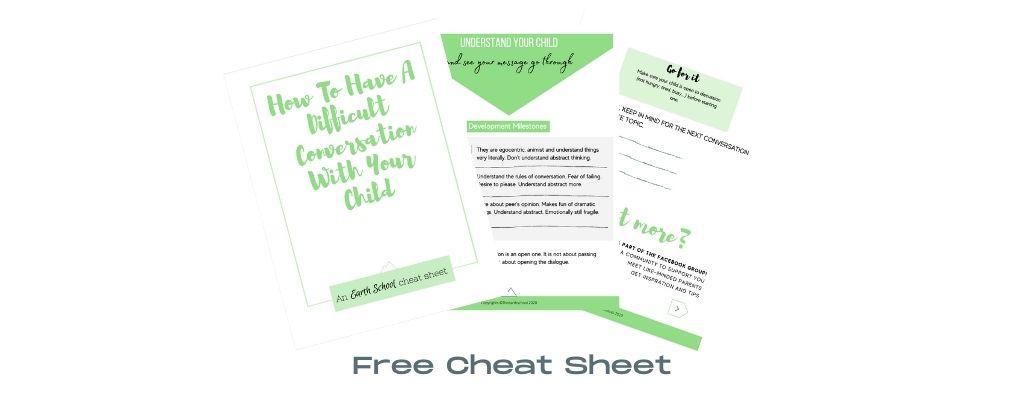 You would like to keep this information for later? Get the Cheat Sheet
You would like to keep this information for later? Get the Cheat Sheet
The 4 Ingredients To Have A Meaningful Conversation With Your Child
Humility and respect
Children have many abilities that we lose as we grow up. We might think of ourselves as superior, but different would be more accurate. Children have less knowledge and experience, but they have inner wisdom we overlook. Children understand many things, and they have a natural non-judgmental mind, but they lack the words to express themselves.
Children are not unfinished adults. They are children, and the fact that they don’t understand everything we say doesn’t mean we are smarter, it means we don’t express ourselves in a way they understand.
Know the milestones of child development
A child can be 10 years old but mentally his development can still be at 8 years old. Observing your child is more important than knowing his age, for every child grows up in his own way. The conversation you had with your first child about sexuality can’t be rehearsed words-for-words with your second child, because every child is unique. Thus, It takes unique conversations to connect with them. As a consequence, if you can have a family discussion about death or racism (and it is very interesting to do it as a family), you will still need to take time with every child to make sure he had the information in a way they can comprehend fully.

Know the characteristics of a conversation with a child
The best way to approach a difficult topic is to start with its outskirts. Some conversations are too hard to dive right in. Take the time to bring up the issue while speaking about it more indirectly. But, in difficult conversations, parents tend to be the worst at listening. Be attentive to your child without interrupting (showing surprise or disapproval can kill a conversation, There are several communication roadblocks you can learn about).
You might want to stick to a subject in particular, but this is not an efficient way to communicate with a child. Your only goal is to keep the conversation open.
Use appropriate communication techniques
A good conversation is an open conversation. Everyone feels good and cared for when everyone’s objectives are met. It means that the child can communicate interrogations and feelings that adults are not expecting. If you offer help that the child understands poorly, or didn’t ask for, it will not be received kindly.
Be warm, cordial, listen, and be open. Gordon who established the 12 communication roadblocks gives some clue as to how you can set up a conversation:
- – Do not interrupt!
- – Use comforting words and gestures.
- – Look at your child.
- – Be authentic
You might be wondering: wasn’t this post about setting up a difficult conversation? This is all about listening to my child!
Receive the children in reverence, educate them in love, and send them forth in freedom”.
-Rudolph Steiner
A Conversation Has To Be Cooperative
What is the biggest trap for adults to fall in? Believing that we know better, and seeing the conversation as a means to pass down lessons. What you truly seek should be for your child to engage and ask questions.
When we speak with a child, since they often don’t speak much in return, we tend to imply what is not said. But again: children and adults are different. Our thoughts and emotions work differently and one can never guess what a child has in mind. What might happen here is that the child will feel misunderstood or not respected in his intimacy, you’re closing the conversation again.
Here is an example
You can find it in a book called “De l’écoute au respect, communiquer avec les enfants” (from listening to respect, communicate with children) written by Martine F. Delfos. She offers a situation: a mother thinks that her child hasn’t had enough sleep.
Here are a few sentences the mother might say and what they truly mean.
- You didn’t sleep enough.
- You look sad and a bit tired, you probably didn’t sleep enough.
- I think that your face looks sad, you probably didn’t sleep enough.
- I believe that you look a bit sad and tired, am I wrong?
- I hope I don’t get this right, but is there something wrong?
- An interested and curious face, no words (nonverbal communication)
Let’s analyze…
- This is more of a statement, there isn’t much to add. This doesn’t invite an open conversation.
- This one states reasons and reaches a conclusion. When you say probably, you invite the other one to challenge your opinion.
- This one is more in line with “positive communication” because it starts with an “I”. It offers the interlocutor a chance to give his version of events. When you use “I”, you’re saying that what you say isn’t an objective fact, but rather your point of view.
- This is a closed question as you can answer with yes or no. Always be mindful to ask open questions to your children (and listen to their answers…)
- This one is the same as number 4.
- Here your child can choose to what to share and what to share (or not, it depends if your child wants to talk about it or not!). Maybe their problem is not that they didn’t get enough sleep but that they cannot find their favorite book. Let’s not assume what is important for our children, based on what is important to us.

What is important here, is to understand that children are highly sensitive to adults’ suggestions. As we adults are sensitive to suggestions when they come from anyone we consider an authority. When you set up a difficult conversation with your child, the most important thing is for you to be able to listen.
Only by listening properly will you know if your child understands what they are struggling with, what feelings are maybe overwhelming,… You can create the perfect environment for your child to be able to speak up. Because what you want, above all, is for your child to be able to express their fears, doubts, questions, or insecurity.
What you don’t want is giving your child a piece of important information: (“your mom went to the hospital”, “yes, there are bad people who hurt children but way more are nice”, “grandpa passed away”, “your dog got run over last night”,…) and not know what they think about it.

Thanks for reading this article! As always, I hope it gave you some line of thoughts to explore as well as ideas to act and create a positive change in your life.
Don’t let the inspiration fades and take action right away:
1. Download our cheat-sheet, it’s on the house
2. Decide on the one action you will implement today and write it down
3. Share this article with 3 friends who could benefit from it
4. Save the article in your favorites
I wish you all the best with your kids, always remember that we all do the best we can at a given moment and don’t judge yourself harshly. Be confident and listen to your intuition. If what you do comes from a place of love, then you’re on the right path.
See you next week for another exciting article!
Other Blog Posts You Might Be Interested In
Don’t Forget To Join Our Community To Get Inspiration And Tips Straight in Your Mailbox
I wish you all the best with your kids. Always remember — we’re all doing the best we can in any given moment, so try not to judge yourself too harshly. Be confident and listen to your intuition. If what you do comes from a place of love, then you’re already on the right path.

If this post resonated with you — if you’ve ever walked ten paces behind your child, wondering if you’re ruining everything — come join us on Instagram.
It’s where I share reminders, reflections, and the odd parenting confession… for mums figuring it out one heart-twinge at a time.

